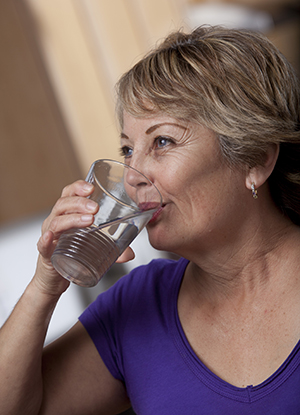Most kidney stones are about the size of a grape seed. Stones of this size are small enough to pass through your urine. Once it is passed, a stone can be analyzed. This wait-and-see approach is called expectant therapy. If pain is a problem, ask your healthcare provider about pain medicines. Then follow their directions for how much water to drink. Drinking more water creates more urine to flush out your stone. Also be sure to strain your urine. Take any stones you pass to your provider for analysis.
Drink lots of water
Drinking lots of water may help your stone pass. Water also dilutes the chemicals in your urine. This reduces your risk of forming new stones. You may be told to drink 8, 12-ounce glasses of water a day. Don't drink liquids that dehydrate you. This includes drinks that have caffeine or alcohol.
Strain your urine
Straining your urine lets you collect your stone for analysis. Use the strainer each time you urinate. Strain your urine for as long as your healthcare provider suggests. Watch for brown, tan, gold, or black specks or tiny pebbles. These may be kidney stones.
Take your medicine
Your healthcare provider may give you medicine that makes it more likely for you to pass the kidney stone.
Follow up with your healthcare provider
Follow up by taking any stones you find to your provider for analysis. The type of stone you have will determine your diet, any medicines, and prevention program. You may need more tests in the future. These tests will help ensure that new stones are not forming. Contact your provider if you have new symptoms or questions. Keep your follow-up appointments.


